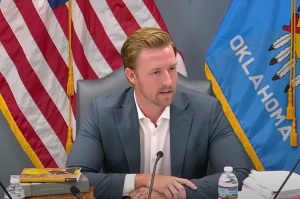Ask Chuck: Refinancing vs. Recasting a Home Mortgage
To learn Biblical answers to your financial questions, you can #AskChuck @AskCrown your questions by clicking here. Questions used may be lightly edited for length or clarity.
Dear Chuck,
My husband and I own a home and are trying to decide if we should change our mortgage to get in better financial health. I read recently about "recasting" a mortgage, which sounds a lot like a fishing term! Is that something worth considering? We've been looking into refinancing. What is the difference?
Confused on Recasting

Dear Confused,
For most of us, a home is the most expensive investment we will ever make, and it's a good one. Throughout the scripture from the first pages in Genesis, God talks about land as a possession and an investment worthy of our efforts, and says in Jeremiah 29:5, "Build houses and live in them; plant gardens and eat their produce." But getting the best deal on that land is a process!
Whether to refinance or recast a mortgage cannot be answered with a simple yes or no. You need to consider a few things first before choosing the best option.
Refinancing a mortgage typically is driven by the desire to get a lower interest rate on your loan, which reduces the cost of what you are paying to borrow money. It involves a credit check, fees based upon the size of the mortgage and a legal process similar to what you went through to get the loan in the first place.
Much less well known isrecasting a loan. Banks don't like to advertise this option because they make lower profits on the process, and not all loans qualify. (It is harder to get approval for recasting a variable rate loan, for example.) But if your mortgage loan does qualify, recasting involves putting cash down on the principle (the amount you borrowed) and then recalculating the loan for lower payments. Your original interest rate stays the same as does the length of your mortgage (a 15, 20 or 30 year loan remains that), but the net effect is you owe less money on the principle and now have a lower monthly payment.
You will generally need at least $5,000 to put down on the mortgage to get approval. One really good reason to recast is if you have a "jumbo loan," a large loan for which the bank can charge a higher interest rate. Getting under that federal limit could be a good move.
Houselogic.com lists these reasons for considering a recasting:
1. You're self-employed or have poor credit, making refinancing a tough proposition.
2. You recently refinanced your mortgage and don't want to go through the cost and hassle again.
3. You received an inheritance and believe you're better off putting it toward your mortgage rather than investing it.
4. You foresee trouble down the road — say, a downturn in your industry — and want to lower your monthly mortgage payments now to prepare for that.
5. You usually invest spare cash in the stock market, but the outlook is so bleak you might as well reduce your mortgage. This is especially true if you also have a high mortgage and can't refinance.
I see the real advantage of recasting as a direct reduction of overall debt and lower monthly payments regardless of the motivations.
Regarding the other option, a real disadvantage to refinancing is that you spend money on fees that do not reduce your mortgage principal but also restart the amortization of your note. This means you start over paying higher amounts of interest on the front end of your mortgage.
Both options require cash and offer the opportunity to lower your monthly payments. Recasting will reduce your mortgage. Refinancing will get you a lower interest rate and possibly a lower overall cost of your mortgage.
But getting rid of a mortgage has other financial implications.
The Wall Street Journal notes: "There are downsides to the strategy (of recasting). Many financial experts advise against putting additional cash into one's residence, arguing that higher returns historically have been available in the financial markets and interest rates on bonds are likely to rise eventually. They also warn of the possible tax consequences of retiring a mortgage early, because mortgage interest on a primary residence can be tax-deductible."
While I don't buy those arguments, it is important not to forget the value of cash on hand for a day of disaster.
In The SALT Plan, a book I wrote on preparing for financial disasters, I note that the Bible recommends that people save 20 percent of their income in good times, to prepare for bad. You never know when you might lose your job or when your health might be in jeopardy. If you recast your loan, and then lose your job, you can't get that cash back unless you sell your home or borrow against your home equity.
In an uncertain world, consider carefully all your options for available cash.
Refinancing makes sense to lower the cost of debt depending on your interest rate, and recasting makes sense if you have sufficient savings and other investments (like retirement) in order. But be sure to have resources available to you in reserve to meet unknown events.
So there are the pros and cons of each option.
From a Biblical perspective, I think it is best to have sufficient money in an emergency savings account, work to pay off your mortgage and become totally debt free. Without knowing more about your circumstances, I would lean towards recasting but keeping your monthly payments the same and applying the maximum amount possible towards the reduction of your mortgage each month.
Prayerfully consider your long-term goals as you make your choice. And as part of that process, take the free MoneyLife Indicator assessment, which looks at how your financial goals and your financial actions are matching up, so that you can better live out your values in your checkbook. If you have money on hand to consider recasting your mortgage, thank the Lord you have these options!
To #Ask Chuck @AskCrown your own question, click here:






























